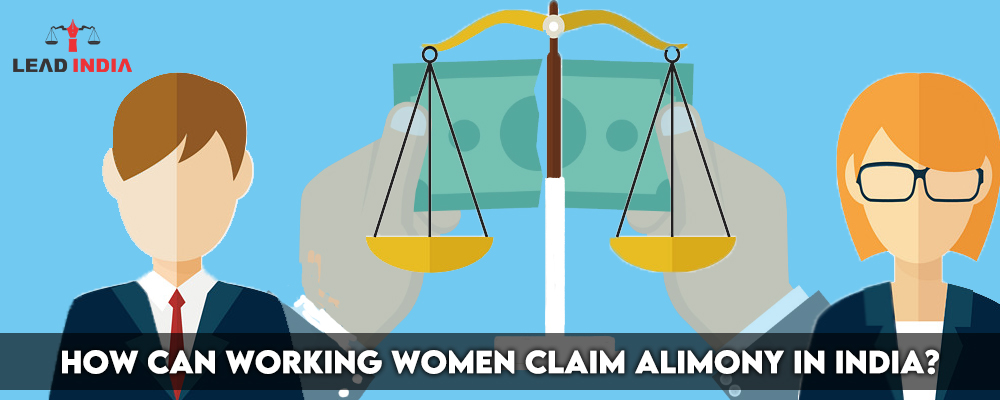The Indian law recognises the right of women for maintenance. The right to maintenance is provided to protect the women from destitution and vagrancy. In India, the law of maintenance is govern by personal laws.
Alimony laws in India
- Section 144 of BNSS talks about the maintenance to wife, children and parents. The wife can file the case of maintenance in the court and the court will see income, assets and property of the husband. After considering all these, the court will decide the amount of maintenance to be paid to wife. The wife can file the application for interim maintenance.
- The Domestic Violence Act of 2005 also provides the women’s right to take back all the items given to her during marriage. The women can even claim compensation or damages from the court for any mental or physical cruelty suffered by her. The court provides the relief in the form of protection order, residence order, compensation order and custody order.
- Section 24 of Hindu Marriage Act talks about the interim maintenance. Under this Act, both husband and wife can claim maintenance. Section 25 of this Act talks about permanent maintenance. The quantum of maintenance is decide by the court after considering various factors.
- Under the Dissolution of Muslim Marriage Act of 1939 and Muslim Women (Protection of Rights of Divorce) Act of 1986 , a husband may repudiate the marriage without giving any reason. The husband can give divorce by way of talaq, ila, zihar etc. A wife can only divorce her husband if such right is delegate to her by her husband or under a contract.
- The Indian Divorce Act of 1869 deals with Christians. Section 36 of the Act talks about alimony pendente lite. Under this, a petition will be file before court and the court after considering the other factors, may make an order requiring the husband to pay wife the alimony during the pendency of suit. The alimony pendente lite does not exceed 1/5th of the husband’s average net income for the three years preceding the date of order and shall continue until the decree for dissolution of marriage is made absolute or is confirm. Section 38 of this Act states that in cases where the court makes any order for alimony, it may direct either to be paid to the wife or to any trustee who is approve by the court. The court may even appoint new trustees from time to time.
Need A Legal Advice
The internet is not a lawyer and neither are you. Talk to a real lawyer about your legal issue

Can a working women claim alimony in India
Technically, yes. In India, whether a wife who earns more than her husband can still seek alimony is a complicated topic with no simple answer. It is ultimately up to several considerations and the court’s discretion.
The law does not expressly prohibit a wife from seeking alimony or wife maintenance simply because she earns more than her husband. There are certain possible scenarios. Let’s discuss these:
- Full Alimony: The court might grant full alimony to the wife if the wife’s income falls short of her needs despite earning and the husband has the capacity to pay.
- Partial Alimony: If the wife’s income partially covers her needs then the court may award partial alimony to the wife.
- No Alimony: If the wife’s income surpasses her requirements and the husband lacks the ability to pay, the court may refuse alimony.
How Can Working Women Claim Alimony In India
- For claiming alimony, it is important to discuss it with a family law expert. It will help you in understanding your specific situation and the legal rights. It will navigate your alimony process effectively.
- Prepare the documents you support like your income proof, evidence of your lifestyle during marriage and reasons for divorce.
- The best way is to do an amicable agreement regarding the alimony. Try to negotiate the alimony amount with the other party.
- In India, working women are not paid alimony based on a predetermine percentage of their husband’s salary. The sum varies depending on the conditions, and the court decides on a case-by-case basis. So, do not expect a fixed percentage of the husband’s income as alimony.
Working ladies in India can claim alimony regardless of whether their salary is more than that of their husbands. Before providing alimony to working women in India, the court considers issues such as the standard of living, husband’s capacity, and the grounds for divorce. Alimony awards might range from full to partial, or even none, depending on the circumstances. Dealing with such a complex situation can be frightening, and seeking legal counsel is critical for a complete understanding of one’s rights and a successful outcome.
For any legal help, contact lead India. We offer free online legal consultation as well as other legal services. On our platform, you can talk to lawyers. You can freely ask any legal question. We provide the solutions to your legal problems.





 Talk to a Lawyer
Talk to a Lawyer